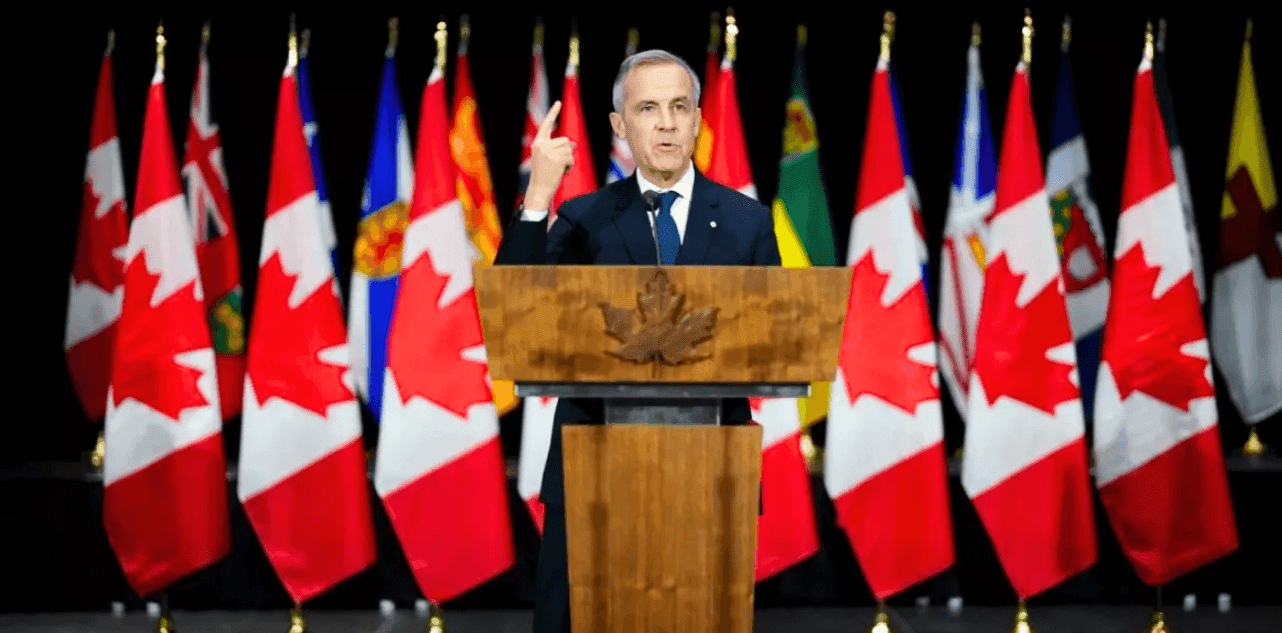Tuesday 17 February 2026
Mark Carney Wins Full term as Canada’s Prime Minister
Share

Liberal Leader Mark Carney has been elected as Prime Minister of Canada in one of the country's most consequential elections in decades. However, it's still not clear if his Liberal Party will win the 172 seats needed for an outright majority in parliament. The vote was widely seen as a decision about which candidate could best handle President Trump, who helped spark a wave of nationalism across Canada by threatening to annex Canada and placing stiff tariffs on the country.
The 60-year-old Carney had a career in investment banking before becoming the governor of the Bank of England during the Brexit turmoil, and as the head of the Bank of Canada during the 2008 economic downturn.
Carney had never held political office before being named leader of the Liberal Party in March. His background in finance and his seemingly unflappable demeanor helped convince voters he was the candidate who could best tackle Trump and his sometimes erratic policies.
Carney beat out Pierre Poilievre, a 45-year-old career politician and head of the Conservative Party. It was a stunning reversal of fortunes for Poilievre, who for more than a year rode high in the polls, at one point with his Conservatives up 27 points over the Liberals.
Poilievre's momentum began to slip in January when former Prime Minister Justin Trudeau resigned. The Liberal Party's Trudeau was widely disliked in Canada by the end of his decade-long tenure and his resignation gave the Liberals a lift. Carney became Trudeau's successor.
But the real boost came when President Trump began targeting Canada's economy and its sovereignty. Many Canadians were outraged by Trump's threat to make Canada the 51st state - a threat he repeated in a post on social media on election day.
Mark Carney wins full term as Canada’s Prime Minister on anti-Trump platform. The voters’ decision sealed a stunning turnaround for the Liberal Party that just months ago seemed all but certain to lose to the Conservative Party.
In fact, Carney, who took over the Liberal Party after Justin Trudeau resigned, is projected to form the next government after the Liberals won a plurality in the 45th federal election. The vote was called early as Carney sought a fresh mandate following internal party changes.
Trudeau's final term was marred by strained ties with India, especially after his public allegation that New Delhi was involved in the killing of NIA-designated terrorist Hardeep Singh Nijjar. Carney, in contrast, has expressed a desire for improved relations with India, including publicly condemning the recent terror attack in Pahalgam.
The election also took place amid U.S. tariff threats from President Donald Trump, who repeatedly attacked Canada and referred to it as the "51st state" of the United States. A Global News–Ipsos poll had predicted a narrow lead for the Liberals heading into the vote.
On the other hand, Jagmeet Singh, leader of Canada’s New Democratic Party, has also lost his seat and resigned following his party’s poor performance in the federal election. The NDP failed to retain official party status. Jagmeet Singh has frequently courted controversy in India for his vocal support of Khalistan activists and criticism of the Indian government.
Singh, who has represented Burnaby Central in British Columbia since 2019, came third in his constituency. His riding was affected by electoral redistribution, but the loss marked a broader collapse of the NDP’s presence in Parliament. The party failed to win the 12 seats required to maintain official party status in the House of Commons.
His loss is expected to shift the tone of Indo-Canadian relations, especially under Canada’s new Prime Minister Mark Carney, who has signaled an intent to reset diplomatic ties.
Newsletter
Stay up to date with all the latest News that affects you in politics, finance and more.